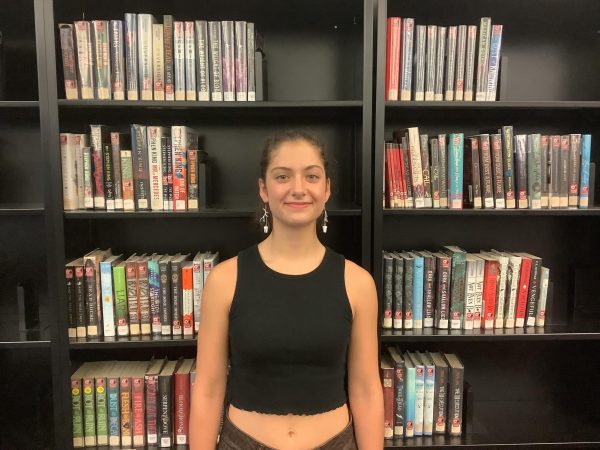The “Hazbin Hotel” pilot was released in October of 2019, and in the four years since its release on YouTube, has garnered over 104 million views. Once the pilot dropped, fans awaited further development, while a similar show produced by the same artist was steadily updated on the platform. Some believed the show to be on hold or simply going nowhere, but after little more than four years, the long-awaited production was announced as a series on Amazon Prime.
Created by Vivienne Medrano, the first season of “Hazbin Hotel” had eight episodes (the pilot was not included on Amazon), each spanning a little over 20 minutes. The new season featured a few minor character redesigns or adjustments, as well as some major casting changes. The second season of the series has already been confirmed, and will likely take less time to produce compared to the first.
So, with such a long wait to raise interest, how did the show hold up against expectations? Well…the show was enjoyable, but overall mediocre.
The show takes place in Hell, following the optimistic Charlie Morningstar (yes, the daughter of Lucifer) in her attempts to build a hotel to rehabilitate sinners. In this fictional universe, Hell faces yearly exterminations from Heaven to prevent uprisings, and Charlie hopes to put an end to the genocide of her people by creating a rehabilitation program that could redeem the souls of sinners, sending them to Heaven and eliminating a need for extermination.
Although this story is told in a modern musical format, the show is R-rated, and touches on mature themes while including more adult humor, so I would not recommend watching it with family or younger siblings.
The show boasts a respectable cast list, including Erika Henninsgen as Charlie, Stephanie Beatriz as Vaggie, Amir Talai as Alastor, Blake Roman as Angel Dust, Keith David as Husk and Christian Borle as Vox. Due to the musical storytelling, many of the cast members are major Broadway stars, or at least have heavy background in musical performance. Charlie’s voice actress originated the role of Cady Heron in the “Mean Girls” musical, and Christian Borle originated the role of Shakespeare in 2015’s “Something Rotten!” Keith David has voiced characters as iconic as Doctor Facilier, Stephanie Beatriz has sung in movies like “Encanto”, and even the side characters-such as Alex Brightman, who starred as Beetlejuice in the 2018 musical of the same name-are established singers.
With so much talent, just how good was the music? Well, it is certainly not Broadway. It does not mean that the entire soundtrack falls flat, but while some of the songs are quite good (and worth blasting), the writing can admittedly lack depth or flow. Some of the lyrics feel stilted or disjointed, and a few songs can come off as cringy rather than meaningfully characterizing the personalities that perform them.
This show pursued a cartoon style, which could be pleasing to a large audience, but could potentially undermine the series in the eyes of many. A childish look presented through cartoonish animation could detract from the wider impact of the show or the validity of the show as a serious and respectable series. However, opting for a sillier or more exaggerated form of animation can be freeing in terms of character motion, as expression and movement can be pushed to higher degrees, emphasizing emotion, humor or simply nicer composition.
The characters themselves carry the majority of the show, and there are even times where the plot can take a backseat to character interaction. Unfortunately, not all characters are created equally. While some are beloved for their humor or witty quips, some end up feeling rather shallow or undeveloped. For example, Angel Dust’s storyline focuses on his survival of ongoing trauma, and the way he must keep up a façade to survive in his current situation. Meanwhile, characters like Vaggie end up feeling flat and unmotivated, seeming more like an accessory to advance another character’s ambitions. On the bright side, the dialogue often feels natural, and since humor is such a major part of the series, the interactions between characters are usually entertaining and it’s still enjoyable to watch them bond and develop unlikely friendships.
Perhaps the greatest sin (ba-dum-chhhh) and one of the most frequently mentioned issues of the show is its pacing. While the basic premise, design and characters can pass for decent media, the pacing feels undeniably rushed. Yes, there are only eight episodes, and they are relatively short, but the amount of plot shoehorned into the first season was simply too much. The story felt hurried, and the prioritization of trying to get as much done as quickly as possible left characters or whole plot lines feeling undeveloped, and rushed past many opportunities for the audience to connect with the characters.
Overall, the show is an enjoyable watch, especially if the pilot had originally hooked your attention with its interesting characters or an exaggerated art style. While the series does have its flaws, and is by no means the epitome of media, this show is still a fun experience with great voice acting, decent jokes and a few good songs that make it worthwhile.






























